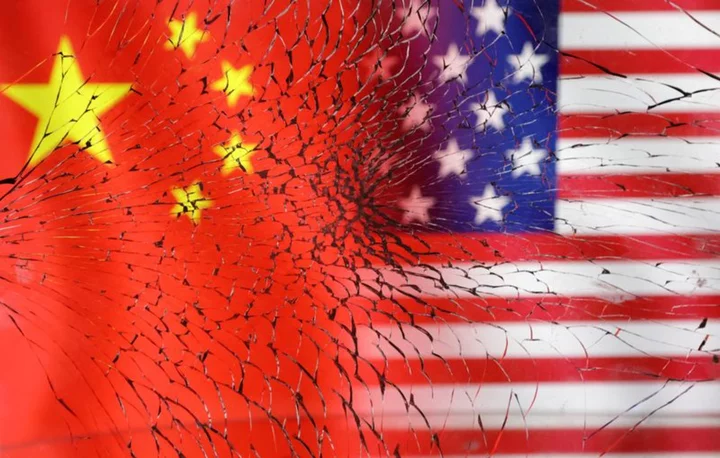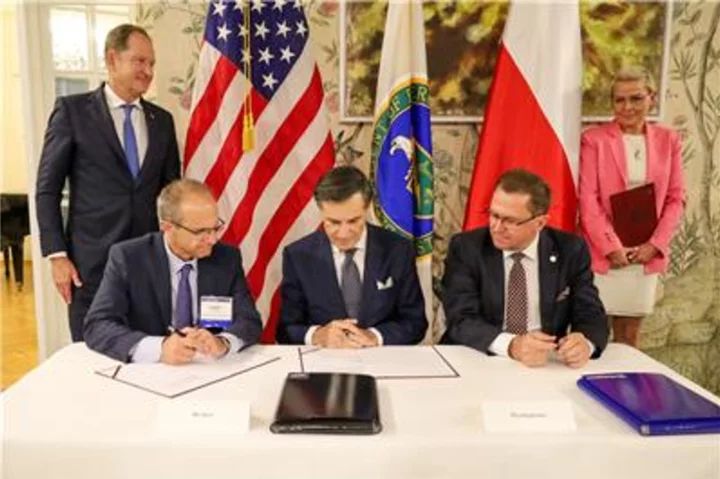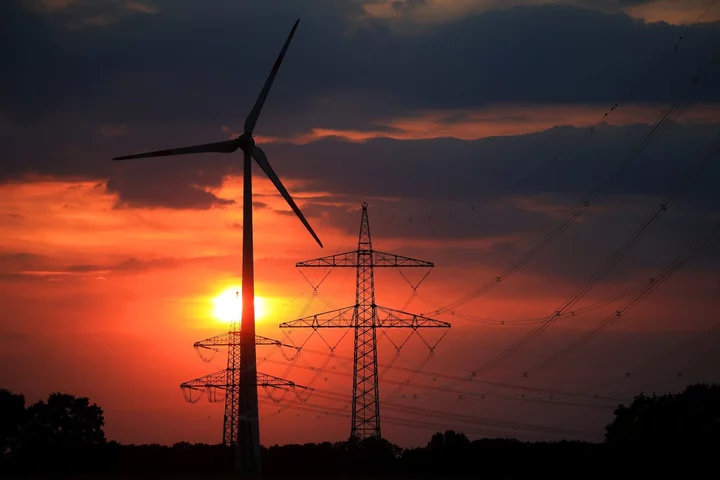SHANGHAI A U.S. lawmaker's demand for trade curbs on a Chinese memory chipmaker in response to China calling products from Micron Technology a national security risk is the latest escalation of tension between the big powers.
The United States and China have been tussling over a range of issues, from Taiwan to technology, drawing their allies into their rivalry and having an impact on companies and trade ties.
Following are five recent flashpoints. TECHNOLOGY
The United States has targeted Chinese companies across the technology sector, from export controls on semiconductor and artificial intelligence firms to a possible ban on short video app TikTok, owned by China's ByteDance, from the U.S. market.
The U.S. says it wants to stop key technologies from reaching China's military and has accused TikTok of being a security risk due to the user data it handles. The Chinese government and companies have denied the accusations.
Memory chip maker Micron became the first U.S. technology firm to be targeted by China, which barred key infrastructure makers from buying Micron products, citing national security.
The chair of a U.S. House of Representatives' committee on China said the U.S. should put trade curbs on Chinese memory chip maker Changxin Memory Technologies in response.
CONSULTANCIES
A Chinese crackdown on its consultancy and due diligence sector brought a raid on the Beijing office of U.S. due diligence firm Mintz, and the detention of five Chinese staff members. China said Mintz was suspected of engaging in unlawful business. Police later visited the Shanghai office of U.S. management consultancy Bain & Co.
Washington called such incidents "inconsistent" with China's assertions it is opening its markets and is committed to a transparent regulatory framework. China's state media said it was "intensifying" protection of national security.
Authorities also targeted Shanghai-headquartered Capvision, which runs China's largest "expert network" group, accusing it of aiding overseas institutions to steal secrets in areas such as the military and technology. Capvision said it would abide by security rules and take the lead in ensuring the consulting industry was compliant.
TAIWAN
China has stepped up military and diplomatic pressure to force democratically governed Taiwan to accept Chinese sovereignty. Taiwan rejects China's claims.
While the United States has long followed a policy of "strategic ambiguity" on whether it would intervene militarily to protect Taiwan in the event of a Chinese attack, U.S. President Joe Biden has said he would be willing to use force to defend it.
SPYING, FOREIGN INFLUENCE
China is facing a backlash from the United States and other Western governments over its efforts to exert influence beyond its borders, including the use of secret 'police stations' that target dissidents and financial crime suspects.
China has disputed the existence of such facilities but has said there are volunteer-run centres abroad that help citizens renew documents and other services.
Washington and Beijing clashed in February after the U.S. shot down what it suspected was a Chinese spy balloon over U.S. airspace. China has said it was a civilian airship.
In May, China convicted a 78-year-old U.S. citizen and Hong Kong resident of espionage and jailed him for life. It did not give specifics of his offence.
RUSSIA/UKRAINE
The United States has said it is concerned by greater alignment between China and Russia and has accused China of considering providing weapons for Russia's war in Ukraine.
While China has stood by Russia, resisting Western pressure to isolate it, it denies any direct involvement in Ukraine and says it wants to promote a peaceful resolution.
This week, China and Russia responded furiously to a G7 summit that singled out both on a range of issues. Russia called the summit an "incubator" for anti-Russian and anti-Chinese hysteria.
(Reporting by Brenda Goh; Editing by Robert Birsel)









